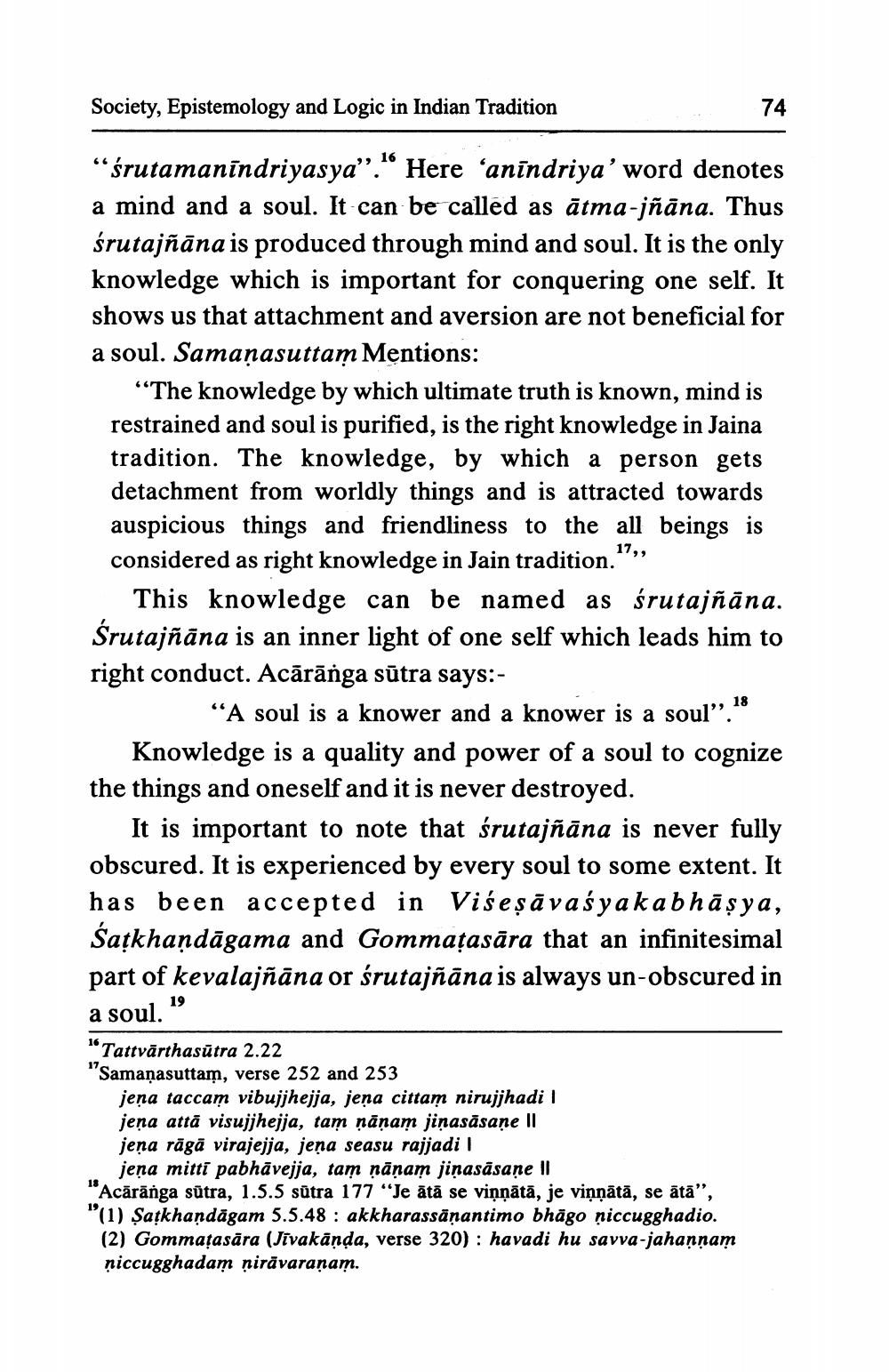________________
Society, Epistemology and Logic in Indian Tradition
"śrutamanīndriyasya”." Here 'anindriya' word denotes a mind and a soul. It can be called as ātma-jñāna. Thus śrutajñāna is produced through mind and soul. It is the only knowledge which is important for conquering one self. It shows us that attachment and aversion are not beneficial for a soul. Samaņasuttam Mentions:
“The knowledge by which ultimate truth is known, mind is restrained and soul is purified, is the right knowledge in Jaina tradition. The knowledge, by which a person gets detachment from worldly things and is attracted towards auspicious things and friendliness to the all beings is considered as right knowledge in Jain tradition."
This knowledge can be named as śrutajñāna. Śrutajñāna is an inner light of one self which leads him to right conduct. Acārānga sūtra says:
“A soul is a knower and a knower is a soul”. Knowledge is a quality and power of a soul to cognize the things and oneself and it is never destroyed.
It is important to note that śrutajñāna is never fully obscured. It is experienced by every soul to some extent. It has been accepted in Višeșāvaśyakabhāsya, Sațkhaņdāgama and Gommațasāra that an infinitesimal part of kevalajñāna or śrutajñāna is always un-obscured in
a soul. "
"Tattvārthasūtra 2.22 "Samaņasuttam, verse 252 and 253
jeņa taccam vibujjhejja, jeņa cittam nirujjhadi 1 jena attā visujjhejja, tam ņāņam jinasāsane II jena rāgā virajejja, jena seasu rajjadi !
jena mitti pabhāvejja, tam nāņam jiņasāsane II "Acārānga sutra, 1.5.5 sūtra 177 "Je ātā se viņņātā, je viņņātā, se ātā", (1) Şarkhandăgam 5.5.48 : akkharassānantimo bhāgo niccugghadio. (2) Gommațasāra (Jivakānda, verse 320): havadi hu savva-jahannam niccugghadam ņirāvaraṇam.




